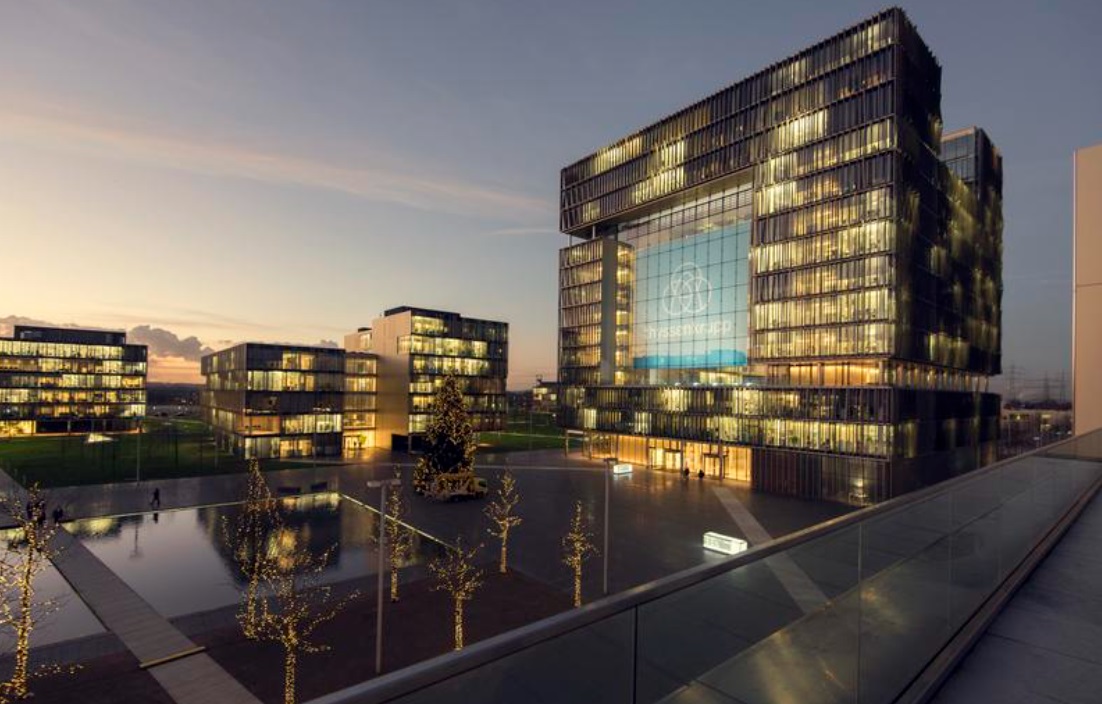Thyssenkrupp to Supply Shell with 200 MW Electrolysis Plant for Green Hydrogen Hub in Netherlands
thyssenkrupp Uhde Chlorine Engineers, a joint venture of industrial and technology conglomerate thyssenkrupp and Industrie De Nora announced an agreement to engineer and build a 200 MW electrolysis plant for Shell’s ‘Hydrogen Holland I’ green hydrogen project in the Netherlands.
Shell is currently working on plans to develop a large-scale hydrogen hub in the port of Rotterdam. The Hydrogen Holland I project will produce green hydrogen for industry and the transport sector, with electricity coming from offshore wind warm Hollandse Kust, in development approximately 18.5 kilometers off the Dutch coast.
The plant will prioritize net zero, utilizing reusable construction materials whenever possible, and incorporating solar panels in the outside walls of the plant.
Hydrogen is viewed as one of the key building blocks of the transition to a cleaner energy future, particularly for sectors with difficult to abate emissions, in which renewable energy solutions such as wind or solar are less practical.
Despite being the most abundant element in the universe, however, there are no pure hydrogen deposits on earth and it must be extracted from other materials. The extraction process often creates pollutants and GHG emissions. Significant investments are required to develop clean extraction processes, such as green hydrogen, which uses a renewable energy-powered electrolysis process to extract hydrogen from water.
According to thyssenkrupp by 2025, countries representing over 80% of global GDP are expected to enter the hydrogen economy with a dedicated hydrogen strategy. The Netherlands is actively promoting the development of green hydrogen as a future clean fuel, with goals specified under the National Climate Agreement to achieve 500 MW of installed electrolysis capacity by 2025, and 3-4 GW by 2030.
Dr. Christoph Noeres, Head of Green Hydrogen at thyssenkrupp Uhde Chlorine Engineers, said:
“We are looking forward to support building a major hydrogen hub in central Europe and to contribute to Europe’s transition to green energy. With our large-scale standard module size, we will further strengthen Shell’s hydrogen strategy. Our partnership perfectly combines our engineering excellence with Shell’s competence of a large global energy player.”
The first construction work for the electrolysers is likely begin in Spring 2022, and Shell’s final decision to build the project is expected in 2022, with start of production anticipated in 2024.





